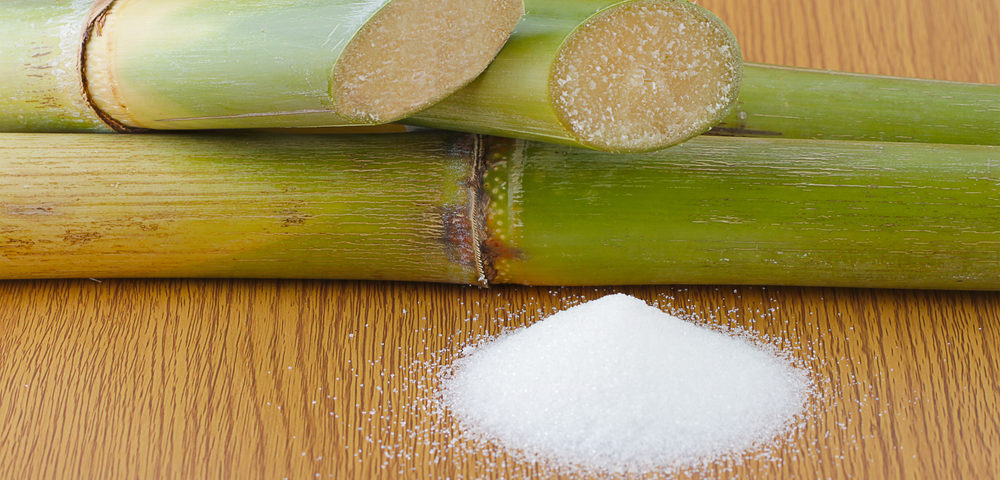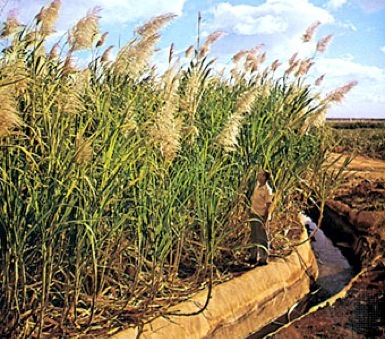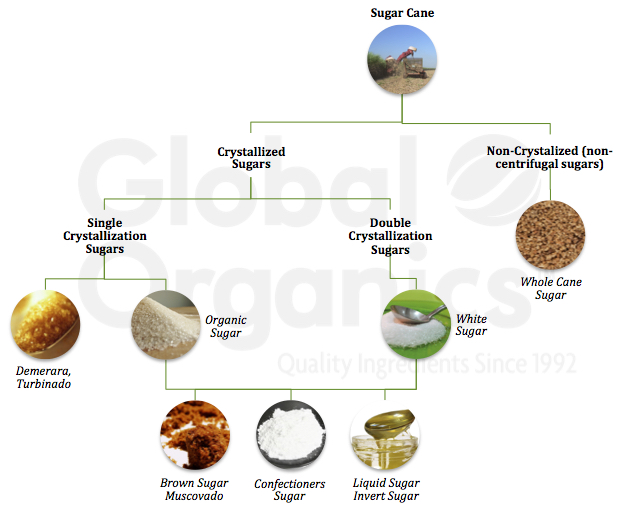The Role of Sugar and Cane in Creating Flavored Syrups and Sweeteners
The Role of Sugar and Cane in Creating Flavored Syrups and Sweeteners
Blog Article
Why Walking Cane Sugar Processing Chemicals Are Vital for Modern Sugar Refining
The role of walking cane sugar handling chemicals in modern sugar refining can not be overemphasized, as they are important to boosting both the effectiveness of removal and the general high quality of the end product. Representatives such as phosphoric acid and details flocculants are utilized to get rid of contaminations, resulting in sugar that not only fulfills consumer expectations yet also follows industry requirements. However, the ramifications of these chemicals expand beyond top quality, touching upon market dynamics and environmental considerations. This increases crucial questions regarding the sustainability of such methods and their influence on the future of sugar production.
Function of Processing Chemicals
The efficiency of cane sugar processing pivots considerably on the critical application of handling chemicals. These chemicals play a critical duty in boosting the performance and top quality of sugar extraction and refining. From the initial phases of juice removal to the last filtration actions, processing chemicals assist in numerous vital procedures.
In the extraction stage, chemicals such as phosphoric acid and calcium hydroxide are employed to maximize the explanation process, assisting to remove impurities and suspended solids from the walking cane juice. This not just boosts the yield but additionally makes certain the clearness of the final product. In addition, agents like flocculants help in the rapid settling of contaminations, thereby streamlining the overall process.
Turned on carbon and ion exchange resins serve to get rid of shade and smell, guaranteeing that the polished sugar satisfies customer high quality requirements. Hence, the meticulous selection and application of these chemicals are essential for attaining ideal outcomes in walking stick sugar handling.
Secret Kinds of Chemicals
Walking stick sugar handling depends on a selection of vital chemicals that help with each phase of production. These chemicals play important functions in making clear, lightening, and purifying the sugar drawn out from cane.
One main category of chemicals includes flocculants, such as polyacrylamide, which aid in the clarification procedure by advertising the gathering and settling of impurities. In addition, calcium hydroxide is frequently employed to reduce the effects of acidity and help in the elimination of non-sugar components.
Bleaching representatives, such as triggered carbon and sulfur dioxide, are utilized to decolorize the syrup, leading to a more clear final item. These chemicals help eliminate color substances that may affect the sugar's appearance and bankability.
Moreover, phosphoric acid works as a pH regulatory authority throughout the handling stages, guaranteeing optimum problems for the chemical activities associated with sugar extraction and filtration.
Various other vital agents consist of edta (ethylenediaminetetraacetic acid), which chelates metal ions that could militarize unfavorable responses, and salt hydroxide, which assists in pH control throughout the refining process. Jointly, these chemicals boost performance and make sure a high-quality walking stick sugar product.
Advantages for Sugar Quality
Frequently neglected, the usage of specific handling chemicals substantially improves the overall top quality of walking stick sugar. These chemicals play a crucial role in refining procedures, ensuring that the end product meets rigid industry standards for pureness and taste.

In addition, processing chemicals aid in achieving a consistent granulation and texture, which are critical for customer acceptance. By regulating the formation procedure, these chemicals guarantee that the sugar crystals create evenly, resulting in a much more appealing product that liquifies well in numerous applications.
Additionally, using these chemicals can improve the rack life of walking cane sugar by reducing dampness absorption and microbial growth. Generally, the critical application of handling chemicals is vital for supplying top quality cane sugar that fulfills consumer expectations and industry needs.
Ecological Influence Considerations

In addition, the energy-intensive nature of sugar refining, intensified by chemical use, often results in enhanced carbon exhausts. This contributes to environment modification and elevates issues concerning the sustainability of present refining techniques. Furthermore, the sourcing of these chemicals may entail practices that endanger biodiversity, such as monoculture farming, which reduces the durability of farming communities.

To mitigate these effects, sugar refiners are increasingly discovering lasting options and embracing finest techniques that minimize chemical usage. Carrying out extensive ecological monitoring systems can assist make sure that the refining procedure straightens with environmental criteria and promotes biodiversity. Ultimately, a well balanced method that focuses on both sugar top quality and environmental stewardship is important for the long-lasting stability of the sugar sector.
Future Patterns in Refining
As my review here the sugar industry faces the ecological obstacles related to conventional refining approaches, innovative techniques are arising to enhance both effectiveness and sustainability. One substantial trend is the fostering of eco-friendly chemistry concepts, which prioritize making use of non-toxic, eco-friendly processing chemicals. This shift not just lessens environmental influence but also addresses customer need for cleaner production approaches.
One more appealing development is the application of advanced filtration modern technologies, such as membrane splitting up Recommended Site and adsorption processes. These techniques improve the quality and high quality of the sugar while minimizing the quantity of wastewater generated throughout refining. Furthermore, the assimilation of electronic technologies, including IoT and AI, is transforming operational performance by allowing real-time monitoring and predictive maintenance, therefore minimizing source waste.
In addition, making use of by-products from sugar refining, such as bagasse and molasses, is getting traction. These materials can be exchanged biofuels or value-added items, adding to a circular economic climate within the market. Collectively, these patterns signify a change in the direction of even more lasting techniques that not just enhance functional efficiency but likewise straighten with global sustainability objectives, guaranteeing the future stability of sugar refining.
Verdict
Cane sugar handling chemicals are important in contemporary sugar refining, substantially boosting the performance and quality of sugar removal. The strategic usage of these chemicals not only enhances the purity and taste of the final item however additionally makes certain regular formation and structure. As the sector increasingly focuses on sustainability, the fostering of environmentally-friendly handling agents is likely to shape future check this site out patterns in refining, inevitably leading to better products and extended life span for consumers.

Eventually, a balanced approach that focuses on both sugar top quality and environmental stewardship is vital for the long-term stability of the sugar market.
Walking cane sugar processing chemicals are essential in modern sugar refining, dramatically boosting the efficiency and high quality of sugar extraction.
Report this page